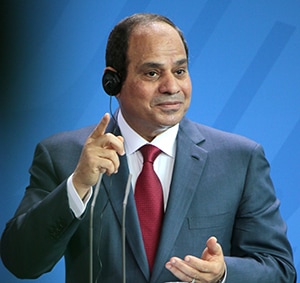Egypt's new sovereign wealth fund is not all it's cracked up to be.

Egyptian President Abdul Fatah al-Sisi |
Egypt’s government approved a bill to establish the country’s first sovereign wealth fund (SWF) with 200 billion Egyptian pounds ($11.3 billion) in initial capital, some of it raised by the privatization and sale of state-owned companies. This news comes at a time of renewed confidence in Cairo’s stewardship of the country’s finances as it emerges from years of political instability and economic mismanagement. President Abdul Fattah al-Sisi’s reelection also buoyed investor hopes that reforms will continue, analysts say.
The law gives the Fund—which will administer unused state assets—authority to establish sub-funds and participate in similar funds from neighboring countries. In March, Egypt’s public enterprise minister said the country was also considering using the new fund to manage state companies ahead of listing on a stock exchange.
“The country is experiencing high inflation,” says Veljko Fotak of the Baffi Carefin Sovereign Investment Lab at the State University of New York at Buffalo. “In that sense, putting funds into an SWF to relieve inflationary pressures might make sense.”
Still, with national health insurance covering just 45% of the population, Fotak questions the rationale for Egypt’s SWF.
“Approximately half of the population lives on the threshold of poverty,” he says. “There are better uses of public funds—infrastructure in particular, with a focus on schooling and healthcare.”
Others are skeptical the fund fulfills the criteria of a SWF at all.
“I would be cautious in the way we consider Egypt’s new vehicle a sovereign wealth fund. It is a sovereign holding company,” says Elliot Hentov, head of policy and research at State Street Global Advisors. “Many of [them] don the SWF label for effective rebranding.” He adds most assets in such portfolios include considerable liabilities and are different from true, unencumbered sovereign wealth, which accumulates from commodity or export surpluses.



